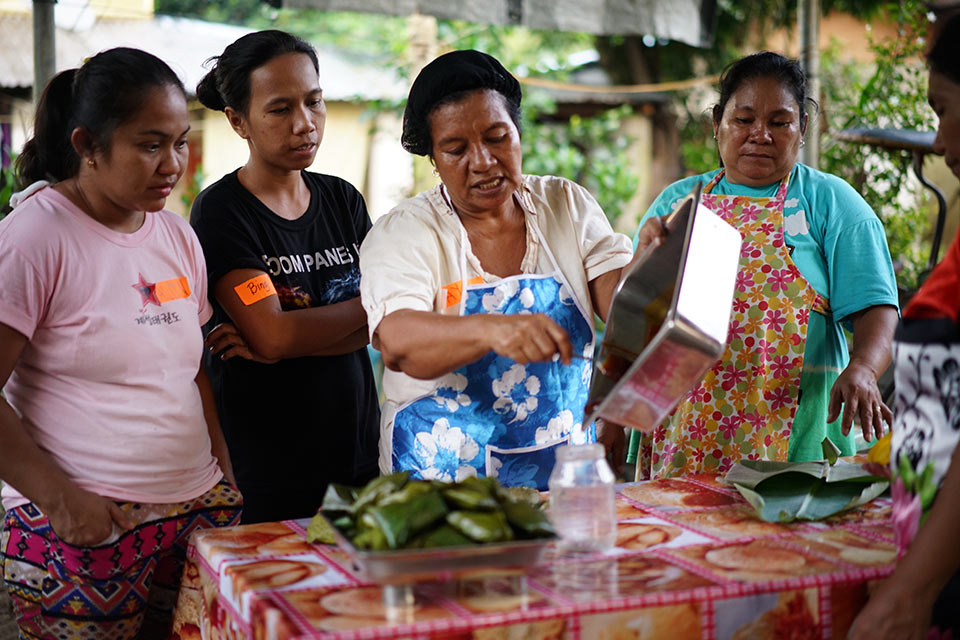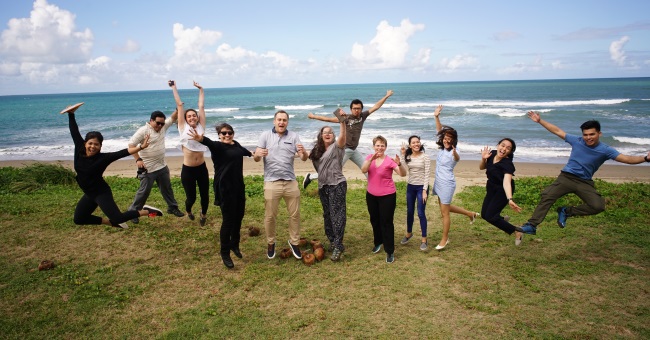Keele launches new global health study

Keele University has officially launched a new interdisciplinary research project to tackle public health issues in the Philippines through local art-based community engagement and ethnographic fieldwork.
The project, entitled Stories of Public Health through Local Art-based Community Engagement (SOLACE), is led by Keele University in collaboration with Ateneo de Manila University in the Philippines. It aims to bring academics from a clinical and humanities background together to work towards the UN Sustainable Development Goals, specifically addressing health and well-being in the Philippines.
In the Philippines around 25% of people live below the poverty line, and the weak infrastructure makes access to healthcare a big challenge. Only 10% of the country's clinicians work in rural areas - where more than half of the population live - and the shortage of primary care doctors is one of the most urgent challenges for public health in the country.
SOLACE brings together researchers from different disciplines including medicine, social sciences, arts and humanities to present their findings on how to improve primary health care to the government, community organisations and the people living in rural and remote areas. The two-year project is funded jointly by the Arts and Humanities Research Council and the Medical Research Council under the Global Challenges Research Fund.

Dr Lisa Dikomitis, Senior Lecturer in Sociology of Health at Keele University and Principal Investigator of SOLACE, said: “We launched the project in January 2018 at Ateneo de Manila University. We will work in the Province of Northern Samar, where more than 600,000 inhabitants have only about 65 doctors between them. Our aim is to unearth the stories and experiences of health and health care from the locals who live in this area, and explore how can we improve and provide efficient healthcare in areas that are difficult to reach. We will also look at how we can attract and retain health professionals in areas that are remote and underserved.”
Dr Dikomitis continued: “I am excited to have researchers from different academic backgrounds because we all view the world through different (disciplinary) eyes, clinicians are trained to focus on the body and illness; anthropologists will look at how people in the barangay (villages) live and artists will look at creative solutions and see how to improve their lives in different ways. I think it is important to bring all these people together to look at the same problem and each think of different solutions.”
The team will present its findings to policy makers, including the local and national government in the Philippine government.
SOLACE is also holding a student competition for Keele medical and humanities students. The winning students will visit the Philippines this summer to work on SOLACE and global health initiatives. For more information or to apply visit the SOLACE website.
You can follow SOLACE news via @Solace_Research.
Most read
- Multiple subjects at Keele ranked in NSS UK Top 5
- New Cabinet member for science praises Keele’s role in clean energy and innovation
- Work starts on Keele in Town development
- Vice-Chancellors welcome report detailing international students' positive economic impact
- Researchers reveal significant health inequalities across North Staffordshire and Stoke-on-Trent
Contact us
Andy Cain,
Media Relations Manager
+44 1782 733857
Abby Swift,
Senior Communications Officer
+44 1782 734925
Adam Blakeman,
Press Officer
+44 7775 033274
Strategic Communications and Brand news@keele.ac.uk.

